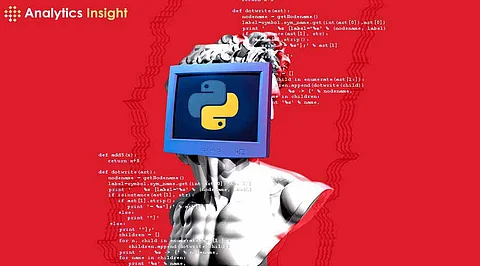

It’s quite challenging for those involved in Python development. However, lightweight frameworks have become a rage in the developer's market, especially for an efficient, fast, and minimalist solution. There are now quite a few lightweight frameworks that have become noteworthy in reducing development complexity without losing the functionally sound aspect. So here is the most remarkable list of lightweight Python frameworks that has created waves in the development community.
Flask is still going strong as one of the most commonly used lightweight frameworks for any web application. It's a simple, straightforward, and flexible web application framework that allows you to build your web application with a minimum of boilerplate code. They have designed it ‘micro’ to let developers compile that string, adding only parts required to keep the application less bulky and better performing. The well-defined documentation and active community make Flask a bet for beginners and experienced developers.
FastAPI has risen to prominence, offering a modern, fast (high-performance) framework for building APIs with Python 3.6+ based on standard Python-type hints. It's designed to be easy to use, fast to code, ready for production, and based on open standards. FastAPI's automatic API documentation and built-in support for asynchronous programming have made it a favorite among developers looking for speed and simplicity.
Bottle is an extremely simple WSGI microweb framework for Python, implemented as a single file module, and has no dependencies outside the Python Standard Library. It is highly suitable for small web applications as well as prototyping, making it a very good candidate for learning web development or feature minimalism projects.
CherryPy is a minimalist Python web framework that adheres to the KISS (Keep It Simple, Stupid) principle. It allows developers to build web applications the same way as any other object-oriented Python program. CherryPy is known for its stability and has been around since 2002, making it one of the oldest Python web frameworks still in active development.
Falcon is a bare-metal Python web API framework for building fast app backends and microservices. It encourages the REST architectural style and tries to do as little as possible while remaining highly effective. Falcon's focus on speed and minimalism makes it an excellent choice for developers building high-performance APIs.
Sanic is a Python 3.7+ web server and web framework that's written to go fast. It allows the usage of the async/await syntax, which makes your code non-blocking and speedy. Sanic is particularly well-suited for building microservices and can handle thousands of simultaneous connections, making it ideal for applications requiring high concurrency.
While not the lightest framework on this list, Tornado deserves mention for its efficiency in handling long-lived network connections. It's particularly well-suited for WebSocket connections and applications that require long polling. Tornado's non-blocking network I/O makes it scalable for thousands of open connections and ideal for real-time applications.
The trend towards lightweight frameworks reflects a broader shift in software development towards microservices and modular architectures. These frameworks allow developers to build easier deploy, scale, and maintain applications. They also align well with cloud-native development practices and containerization technologies like Docker.
When selecting a lightweight framework, developers should consider factors such as the specific requirements of their project, the learning curve, community support, and long-term maintainability. While these frameworks offer simplicity and efficiency, ensuring they provide the necessary features for the project at hand is crucial.
Lightweight Python frameworks are a hotshot favorite these days, offering developers a rich array of options for building efficient and scalable applications. From the versatility of Flask to the speed of FastAPI and the simplicity of Bottle, these frameworks cater to a wide range of development needs. As Python development advances, these lightweight solutions will likely play an increasingly important role in shaping the future of web and API development.
